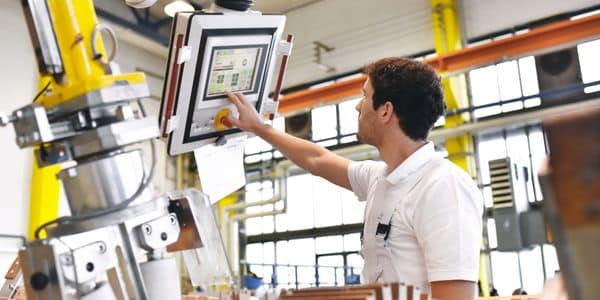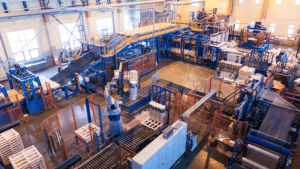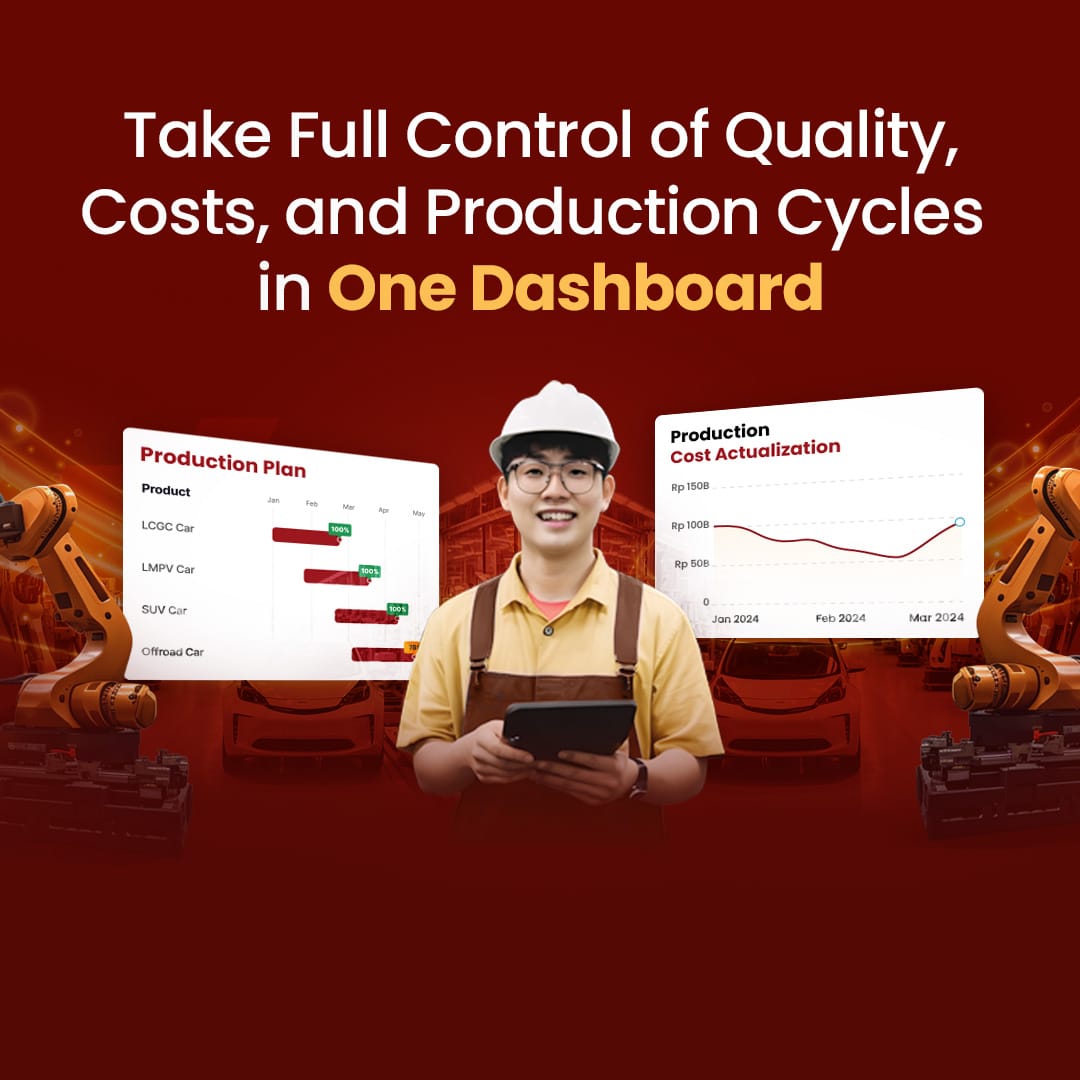Have you been experiencing manufacturing problems lately? Such as insufficient data or information, high cost levels, and difficulties in managing inventory? If the answer is yes, then you need a manufacturing operating system for your business. Manufacturing software is a tool to improve internal processes and address manufacturing issues.
The software works to achieve continuous business improvement. It can streamline the entire manufacturing process with integrated data that can be accessed automatically, in real-time, and accurately. Therefore, check out this article to know factory problems and how to solve them with the best manufacturing system.

Table of Content:
Table of Content
Types of Manufacturing Operating System
Custom manufacturing
Custom manufacturing has been around longer than any other manufacturing method and is widely used today. This is because, despite its high quality, its output efficiency is low. Each product in the custom manufacturing system is made by a skilled artisan using either hand tools or mechanical equipment. In contrast, the machines employed are one-off models incapable of mass-producing the likes of other goods. As a result, the price per unit for a single finished good is the highest in the custom manufacturing sector. The result is the highest-quality, most expensive product available.
Also read: 6 Inventory Management Hacks for Manufacturers
Intermittent manufacturing
A discontinuous manufacturing system enables businesses to produce various goods on the same production line. Manufacturing plants are built to handle a wide range of product sizes and specifications. To fulfill orders, goods are typically processed in lots. Because of its popularity in countries with relatively cheap labor that produce goods for multinational corporations based thousands of miles away, this system is commonly referred to as a ‘job shop.’
Job shop production is defined as the production of one or more quality products designed and manufactured following customer specifications within a predetermined time and cost. This is distinguished by low volume and a wide range of products. A workshop is made up of general-purpose machines organized into departments.
This system is intended for intermittent production runs, as the name implies, or products that do not require high volumes. It employs general-purpose machines and highly skilled labor. Because of general-purpose machines and facilities, the advantages are low volume and a wide range of products that can be produced. There is room for creative methods and innovative ideas—simple supervision. The disadvantages are as follows: High cost due to frequent setup changes. Extensive space requirements.
Continuous manufacturing
Continuous manufacturing systems are designed to do mass production of a particular item. The product goes through an assembly line with different stations where the parts are added in sequence one by one. The origin of this method is when the industrial revolution happened. At that time there were rapid developments in the field of manufacturing and production technology.
One company by the name of Ford Motor Company produced the Ford model T which was considered the first affordable automobile. The relatively low price was partly the result of Ford’s efficient fabrication including assembly line production instead of individual handcrafting. This type of production is ideal for companies that have high volume targets. The reason is that continuous manufacturing can reduce the cost per product. However, continuous manufacturing requires massive initial capital investment due to high equipment and labor costs.
Also read: 6 Sales Lead Generation Tips for Manufacturers
Flexible manufacturing
Flexible manufacturing is a manufacturing system that is becoming more popular in the industry. The reason is that this type of manufacturing is more advanced and modern than others. Flexible manufacturing has increased the functionality of machines that can be reconfigured to manufacture different products in different quantities. Because it has great flexibility in the variety of high-volume goods it can produce. Since the entire process is automated, quality control is simple, and unit costs are low. However, the drawback is that this manufacturing operating system requires a high investment in machinery.
Common Manufacturing Challenges
Manufacturing companies face a variety of issues in their day-to-day operations. Some issues may vary slightly from industry to industry, but there are some common challenges faced by manufacturing companies across verticals & industries.
1. Insufficient data
Many people who never used manufacturing operating system before often choose to manage things manually. Which is fine, but when it comes to data, it has similar common problems and that is insufficient data. Preparing data by hand takes a lot of time along with the possibility of human errors. It can take longer to record information because it doesn’t have a way to do it automatically. You also can’t be sure that the data is always accurate or up-to-date.
2. Integration of operations and locations
Some manufacturing companies have multiple locations and use different systems. As a result, there was a lack of proper information flow and coordination among departments and locations. Meanwhile, coordination between branches is vital for the company to run well. Therefore, the company was unable to apply uniform practices throughout the organization.
3. Maintaining optimal inventory
To sustain continuous output, manufacturing organizations must maintain optimal inventory levels. However, without ERP software, companies are like walking with one eye closed. This leads to manufacturers not having total awareness of inventory on the production line, inventory in multiple warehouses, inventory in transit, and so on. As a result, situations of overstocking or stock-outs become recurring issues. Such issues have an impact on both production and production costs.
4. Ensuring optimal resource usage
Manufacturing organizations should strive to maximize resource utilization to achieve cost-effective output. ERP software stores vital information about the organization’s plant, machinery, and equipment. EFor maintenance, routine checks, servicing, inspections, and upkeep, ERP establishes certain conditions and generates alerts. Therefore, if the company lacks ERP software, it cannot assure that the plant, machinery, and equipment are in good shape to provide maximum production.
5. Work efficiency
Employee productivity & efficiency directly impacts the functioning of the organization. Without ERP software, employees waste much time performing routine tasks like data entry and document creation. Their preoccupation with such tasks prevents them from concentrating on tasks that add value. Furthermore, employees do not have a lot of time to improve and develop the business.
6. Controlling costs
The ultimate goal of any business is profitability. Controlling or reducing costs is the most effective way to achieve profitability. For example, if a manufacturing company can reduce the cost of producing an item, profits will skyrocket. Without ERP software, it would not be easy to keep track of the various costs associated with raw materials, purchasing, procurement, inventory maintenance, and so on. It would also be challenging to identify trends and problem areas.
7. Ensuring On-Time Delivery
If the company does not have ERP software, all inventory work will be done manually. This includes creating workflows and rules for warehouse management, properly organizing inventory to speed up production, and ensuring quality standards through regular checks and inspections. Manufacturing companies cannot deliver products to customers on time without software that automatically organizes business activities.
How Manufacturing Operating System Could Overcome The Challenges
Manufacturing operating systems ensure that the correct information is always available, allowing business owners to make the best decisions at any time. The software collects data in a digital format across all business processes and provides real-time updates. Data is always up to date, consistent across branches, and easily accessible at all times. ERP software can also integrate all of an organization’s critical processes. Ensure proper inventory control throughout the organization by defining and implementing standardized inventory management practices and procedures. To ensure that manufacturers can maintain optimal inventory, reduce inventory-related costs, and increase profits, you will have accurate inventory knowledge and stock items in real-time across the organization.
However, to achieve cost-effective production, inventory resources must be optimally utilized. That is why ERP software generates alerts for routine maintenance, so you don’t have to wait for machines to break down and buy new ones, wasting money. By automating every data, document, and approval, manufacturing operating systems can also help increase employee productivity. They can devote their valuable time to moving the company forward. Aside from effectively reducing time, the software can also reduce costs, which impacts business profitability.
Conclusion
It is no longer necessary to perform business operations manually using spreadsheets, particularly when managing your manufacturing inventory. Inventory is an important aspect of business in the manufacturing industry. Furthermore, ERP software is required for facilities such as integration, automation of documents and reports, and reduction of time and costs. Hash Manufacturing Software may be the answer to increasing your company’s efficiency and profitability. Get a free demo from us!























































